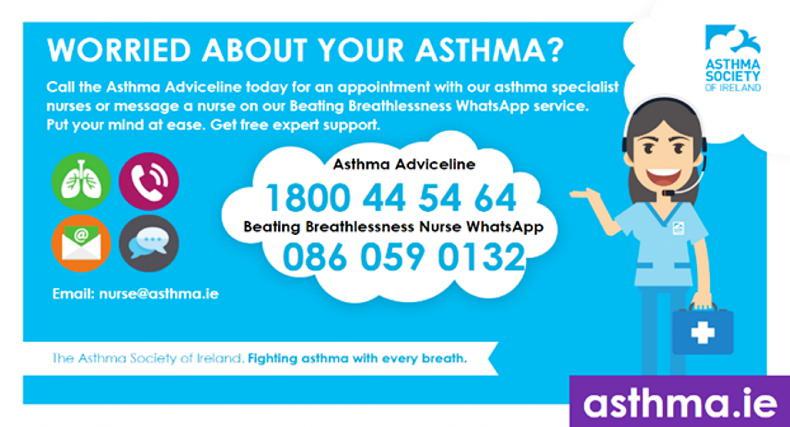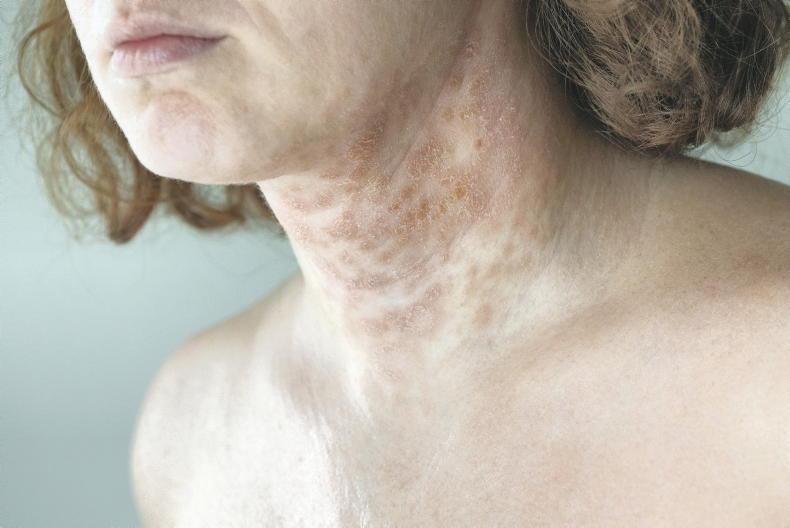Vaccines your child will receive during their school years
Is your child starting school and are you wondering what vaccinations they face during their time there? Well, when kids start school, they get many of these life-saving vaccinations under the School Immunisation Programme. Between the ages of four to five, they receive a four-in-one vaccination (diphtheria, tetanus, whooping cough and polio), plus MMR (measles, mumps and rubella) vaccine. The injections may be administered by a GP or in school.
Between the ages of 11 and 14 years, a Tdap (tetanus and low-dose diphtheria) booster is administered, a meningococcal ACWY booster and the HPV (human papillomavirus) vaccine (two doses, all given in school).
For more information, talk to your GP, public health nurse or local health office or see the HSE’s National Immunisation office website: https://www.hse.ie/eng/health/immunisation/ for fact sheets about individual vaccinations.
HPV vaccine for boys and girls
HPV infection can cause many types of cancer in males and females and also genital warts. Vaccination helps control the spread of infection. The HSE school vaccination teams visit schools twice in students’ first year of secondary school, usually at the end of September (HPV 1 and Tdap) and in March (HPV 2 and MenACWY vaccine). Boys and girls get four injections in total, two at each visit with one vaccine being given in each arm.
Education and friendship benefits your health
Strong links between education and health have been shown by the Institute of Public Health in Ireland’s study Health Impacts of Education: a review.
The evidence of this review shows that greater levels of education can lead to:
Improved chances of finding secure, well-paid employment with subsequent health benefits.More opportunities for social development and enhanced social skills, with positive impacts for both the individual and wider community and, subsequently, for general health.Greater likelihood of developing knowledge, attitudes and behaviours conducive to good health.The power of friendship
Turn2Me, the national mental health charity, lists six ways having close friends can benefit our mental health:
Increases sense of belonging.Increases happiness.Decreases stress.Helps you cope with trauma, grief and life’s challenges.Friends can give advice on healthy behaviour.Friends can help us live longer because emotional and physical health is boosted.Turn2Me offers counselling to adults and teenagers aged 12 and up, as well as group support services. See www.turn2me.ie for further information.
When can your child return to school?
Chicken pox: When scabs are dry.Conjunctivitis: No need to stay out if child is well* Diarrhoea or vomiting: 48 hours after the last episode.Flu: Five days after start of illness.Glandular fever: No need to stay out*.Hand, foot & mouth: No need to stay out*.Impetigo: When scabs are dry or 24 hours after starting antibiotics.Measles: Four days after rash appears.Mumps: Five days after swelling appears.Scabies: After first treatment.Scarlet Fever: 24hrs after starting antibiotics.Slapped cheek: No need to stay out*.Threadworms: No need to stay if child is well*Whooping cough: Five days after starting antibiotics or 21 days after start of illness.* While there is no need to stay out with illnesses, the school or childcare provider should be informed. Source: The HSE’s Management of Infectious Diseases in Schools guidance document.

Details of the Asthma advice line
Schedule an asthma review for your child and put a plan in place.Talk to your child’s teacher and make sure they are aware of your child’s asthma, the triggers and what to do if your child has an attack. Make sure your child has access to their medication.Your child needs to carry their blue inhaler (reliever) at all times. A spare inhaler should also be left in school and labelled clearly with their name. For young children, ask the school to keep a spare spacer (plastic fitting to help use inhaler) as well. Asthma Adviceline 1850 44 54 64. Iron deficiency can make children feel tired and unable to concentrate. The average bowl of chocolate-covered cereal contains as much sugar as a bar of chocolate.25% of school-going children have vision problems. Opticians recommend a pre-school check.You should buy shoes late in the day as feet swell by 5% to 8% during the day. Children can grow by a shoe size in one year, with particular growth spurts between the ages of nine and 13. Top tips for a happy school day
Establish a sleep routine
Put away electronic devices at least one hour before bedtime.Encourage children to read a book before bedtime. Avoid exercise and caffeine before bed. MakeAStart.ie has helpful tips and support on developing sleep routines as well as information on how healthy eating is linked to healthy sleep.Breakfast is a winner
Pupils who take time to eat a healthy breakfast are more alert in school than those who don’t, research has shown. Also, healthy foods combined with sufficient rest will help children’s bodies fight off infections.
A nutritious lunch is an important part of the school day too. Safefood Ireland has lots of healthy lunch ideas. See https://www.safefood.net/Healthy-Eating/Family-health/Healthy-lunch-ideas
Steer clear of fizz
Choosing healthy drinks like water and milk for your children has real benefits and will help improve mood, aid digestion, prevent fatigue and aid brain function. Fizzy and sports drinks are often full of sugar and caffeine. Excess caffeine can raise blood pressure, increase heart rates, interfere with sleep and cause irritability and nervousness.
Having the chats
Make time to talk with your children about what they think and feel about going back to school, their hopes, fears and worries. Being calm will reassure your child.
Managing your child’s anxiety
Acknowledge their feelings.Recognise and tell your child about the things you admire about them.Encourage your child to connect with friends before they return to the classroom.Parent self-care
Take time to check in with your own feelings.Be kind to yourself. Acknowledge all the good work you’re doing and praise yourself. Talk to your partner, family and friends if you need some help.Make time to do something that you enjoy.When should I keep my child home from school or childcare? If your child has symptoms of a cold or flu it’s really important you test them for COVID-19. Even if the test is negative, continue to test them in the days afterwards if they remain unwell.
The HSE has the following advice:
Keep your child at home if they:
Have symptoms of COVID-19.Have gotten a positive COVID-19 test result.Have diarrhoea and are aged 12 or younger.When it’s OK to send your child to school or childcare?
It is usually OK to send your child to school or childcare if they:
Have tested negative and only have nasal symptoms, such as a runny nose or a sneeze, but otherwise feel well.Have tested negative and have not had any new symptoms for 48 hours.Have not had diarrhoea for 48 hours.Many children, parents and teachers live with underlying conditions, which mean they remain very vulnerable to Covid. This is particularly true if they are immune compromised as vaccines are far less effective in this group. Therefore, it’s important to test yourself and your children regularly if you display any symptoms and to keep wearing your mask in healthcare settings, including pharmacies, public transport and in grocery stores so that everyone can safely get out and about.
Online breastfeeding course
Lactation consultant Katie Mugan of NursingMama.ie has now launched an on-demand, online “Preparing for Breastfeeding & Beyond” course.
It’s the first of its kind to be launched in Ireland, she says. Parents can take the course at their own pace and from the comfort of their own home. It includes useful videos and tips.
A “Weaning from Breastfeeding” course is also available, as well as the course. See www.nursingmama.ie
Caring can damage your health
A study by researchers at University of Limerick has shown that the chronic stress of being a carer can have a damaging effect on the health of caregivers.
The research team, led by Professor Stephen Gallagher of UL, found that caregivers who were initially healthy displayed a 33% greater risk of illness or disability just eight years later.
Read more
Health: does the term “heart failure” put the heart crossways in you?
Health: advice for strains and sprains
Vaccines your child will receive during their school years
Is your child starting school and are you wondering what vaccinations they face during their time there? Well, when kids start school, they get many of these life-saving vaccinations under the School Immunisation Programme. Between the ages of four to five, they receive a four-in-one vaccination (diphtheria, tetanus, whooping cough and polio), plus MMR (measles, mumps and rubella) vaccine. The injections may be administered by a GP or in school.
Between the ages of 11 and 14 years, a Tdap (tetanus and low-dose diphtheria) booster is administered, a meningococcal ACWY booster and the HPV (human papillomavirus) vaccine (two doses, all given in school).
For more information, talk to your GP, public health nurse or local health office or see the HSE’s National Immunisation office website: https://www.hse.ie/eng/health/immunisation/ for fact sheets about individual vaccinations.
HPV vaccine for boys and girls
HPV infection can cause many types of cancer in males and females and also genital warts. Vaccination helps control the spread of infection. The HSE school vaccination teams visit schools twice in students’ first year of secondary school, usually at the end of September (HPV 1 and Tdap) and in March (HPV 2 and MenACWY vaccine). Boys and girls get four injections in total, two at each visit with one vaccine being given in each arm.
Education and friendship benefits your health
Strong links between education and health have been shown by the Institute of Public Health in Ireland’s study Health Impacts of Education: a review.
The evidence of this review shows that greater levels of education can lead to:
Improved chances of finding secure, well-paid employment with subsequent health benefits.More opportunities for social development and enhanced social skills, with positive impacts for both the individual and wider community and, subsequently, for general health.Greater likelihood of developing knowledge, attitudes and behaviours conducive to good health.
The power of friendship
Turn2Me, the national mental health charity, lists six ways having close friends can benefit our mental health:
Increases sense of belonging.Increases happiness.Decreases stress.Helps you cope with trauma, grief and life’s challenges.Friends can give advice on healthy behaviour.Friends can help us live longer because emotional and physical health is boosted.Turn2Me offers counselling to adults and teenagers aged 12 and up, as well as group support services. See www.turn2me.ie for further information.
When can your child return to school?
Chicken pox: When scabs are dry.Conjunctivitis: No need to stay out if child is well* Diarrhoea or vomiting: 48 hours after the last episode.Flu: Five days after start of illness.Glandular fever: No need to stay out*.Hand, foot & mouth: No need to stay out*.Impetigo: When scabs are dry or 24 hours after starting antibiotics.Measles: Four days after rash appears.Mumps: Five days after swelling appears.Scabies: After first treatment.Scarlet Fever: 24hrs after starting antibiotics.Slapped cheek: No need to stay out*.Threadworms: No need to stay if child is well*Whooping cough: Five days after starting antibiotics or 21 days after start of illness.* While there is no need to stay out with illnesses, the school or childcare provider should be informed. Source: The HSE’s Management of Infectious Diseases in Schools guidance document.

Details of the Asthma advice line
Schedule an asthma review for your child and put a plan in place.Talk to your child’s teacher and make sure they are aware of your child’s asthma, the triggers and what to do if your child has an attack. Make sure your child has access to their medication.Your child needs to carry their blue inhaler (reliever) at all times. A spare inhaler should also be left in school and labelled clearly with their name. For young children, ask the school to keep a spare spacer (plastic fitting to help use inhaler) as well. Asthma Adviceline 1850 44 54 64.
Iron deficiency can make children feel tired and unable to concentrate. The average bowl of chocolate-covered cereal contains as much sugar as a bar of chocolate.25% of school-going children have vision problems. Opticians recommend a pre-school check.You should buy shoes late in the day as feet swell by 5% to 8% during the day. Children can grow by a shoe size in one year, with particular growth spurts between the ages of nine and 13. Top tips for a happy school day
Establish a sleep routine
Put away electronic devices at least one hour before bedtime.Encourage children to read a book before bedtime. Avoid exercise and caffeine before bed. MakeAStart.ie has helpful tips and support on developing sleep routines as well as information on how healthy eating is linked to healthy sleep.Breakfast is a winner
Pupils who take time to eat a healthy breakfast are more alert in school than those who don’t, research has shown. Also, healthy foods combined with sufficient rest will help children’s bodies fight off infections.
A nutritious lunch is an important part of the school day too. Safefood Ireland has lots of healthy lunch ideas. See https://www.safefood.net/Healthy-Eating/Family-health/Healthy-lunch-ideas
Steer clear of fizz
Choosing healthy drinks like water and milk for your children has real benefits and will help improve mood, aid digestion, prevent fatigue and aid brain function. Fizzy and sports drinks are often full of sugar and caffeine. Excess caffeine can raise blood pressure, increase heart rates, interfere with sleep and cause irritability and nervousness.
Having the chats
Make time to talk with your children about what they think and feel about going back to school, their hopes, fears and worries. Being calm will reassure your child.
Managing your child’s anxiety
Acknowledge their feelings.Recognise and tell your child about the things you admire about them.Encourage your child to connect with friends before they return to the classroom.
Parent self-care
Take time to check in with your own feelings.Be kind to yourself. Acknowledge all the good work you’re doing and praise yourself. Talk to your partner, family and friends if you need some help.Make time to do something that you enjoy.
When should I keep my child home from school or childcare? If your child has symptoms of a cold or flu it’s really important you test them for COVID-19. Even if the test is negative, continue to test them in the days afterwards if they remain unwell.
The HSE has the following advice:
Keep your child at home if they:
Have symptoms of COVID-19.Have gotten a positive COVID-19 test result.Have diarrhoea and are aged 12 or younger.When it’s OK to send your child to school or childcare?
It is usually OK to send your child to school or childcare if they:
Have tested negative and only have nasal symptoms, such as a runny nose or a sneeze, but otherwise feel well.Have tested negative and have not had any new symptoms for 48 hours.Have not had diarrhoea for 48 hours.Many children, parents and teachers live with underlying conditions, which mean they remain very vulnerable to Covid. This is particularly true if they are immune compromised as vaccines are far less effective in this group. Therefore, it’s important to test yourself and your children regularly if you display any symptoms and to keep wearing your mask in healthcare settings, including pharmacies, public transport and in grocery stores so that everyone can safely get out and about.
Online breastfeeding course
Lactation consultant Katie Mugan of NursingMama.ie has now launched an on-demand, online “Preparing for Breastfeeding & Beyond” course.
It’s the first of its kind to be launched in Ireland, she says. Parents can take the course at their own pace and from the comfort of their own home. It includes useful videos and tips.
A “Weaning from Breastfeeding” course is also available, as well as the course. See www.nursingmama.ie
Caring can damage your health
A study by researchers at University of Limerick has shown that the chronic stress of being a carer can have a damaging effect on the health of caregivers.
The research team, led by Professor Stephen Gallagher of UL, found that caregivers who were initially healthy displayed a 33% greater risk of illness or disability just eight years later.
Read more
Health: does the term “heart failure” put the heart crossways in you?
Health: advice for strains and sprains










SHARING OPTIONS